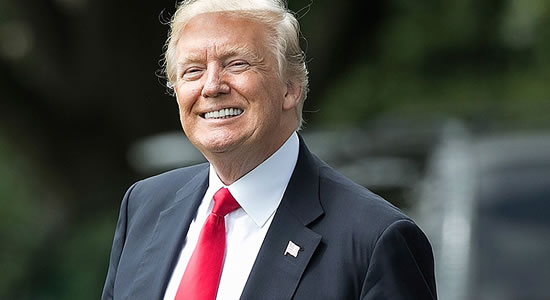The U.S. Supreme Court on Monday allowed the Trump administration to fully enforce the latest travel ban targeting people from six Muslim-majority countries as the ban goes into full effect even as legal challenges continue in lower courts. The nine-member court, with two liberal justices dissenting, granted his administration’s request to lift two injunctions imposed by lower courts that had partially blocked the ban, which is the third version of a contentious policy that Trump first sought to implement a week after taking office in January.
The high court’s action means that the ban will now go fully into effect for people from Chad, Iran, Libya, Somalia, Syria and Yemen seeking to enter the United States. The Trump administration has said the travel ban is needed to protect the United States from terrorism by Islamic militants.
This is not a final ruling on the travel ban: Challenges to the policy are winding through the federal courts, and the justices themselves ultimately are expected to rule on its legality.
But the action indicates that the high court might eventually approve the latest version of the ban, announced by President Donald Trump in September. Lower courts have continued to find problems with the policy.
Opponents of this and previous versions of the ban say they show a bias against Muslims. They say that was reinforced most recently by Trump's retweets of anti-Muslim videos.
"President Trump's anti-Muslim prejudice is no secret. He has repeatedly confirmed it, including just last week on Twitter. It's unfortunate that the full ban can move forward for now, but this order does not address the merits of our claims," said Omar Jadwat, director of the American Civil Liberties Union's Immigrants' Rights Project. The ACLU is representing some opponents of the ban.
Trump had promised as a candidate to impose “a total and complete shutdown of Muslims entering the United States.” Last week he shared on Twitter anti-Muslim videos posted by a far-right British party leader.The Justice Department, which has defended the ban, had no immediate comment.
Lower courts had previously limited the scope of the ban to people without either certain family connections to the United States or formal relationships with U.S.-based entities such as universities and resettlement agencies.
Trump’s ban also covers people from North Korea and certain government officials from Venezuela, but the lower courts had already allowed those provisions to go into effect.
The high court said in two similar one-page orders that lower court rulings that partly blocked the latest ban should be put on hold while appeals courts in San Francisco and Richmond, Virginia weigh the cases. Both courts are due to hear arguments in those cases this week.
The Supreme Court said the ban will remain in effect regardless of what the appeals courts rule, at least until the justices ultimately decide whether to take up the issue on the merits, which they are highly likely to do. The court’s order said the appeals courts should decide the cases “with appropriate dispatch.”



















